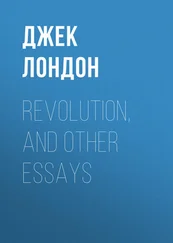Guy Thorne - I Believe and other essays
Здесь есть возможность читать онлайн «Guy Thorne - I Believe and other essays» — ознакомительный отрывок электронной книги совершенно бесплатно, а после прочтения отрывка купить полную версию. В некоторых случаях можно слушать аудио, скачать через торрент в формате fb2 и присутствует краткое содержание. Жанр: foreign_prose, на английском языке. Описание произведения, (предисловие) а так же отзывы посетителей доступны на портале библиотеки ЛибКат.
- Название:I Believe and other essays
- Автор:
- Жанр:
- Год:неизвестен
- ISBN:нет данных
- Рейтинг книги:3 / 5. Голосов: 1
-
Избранное:Добавить в избранное
- Отзывы:
-
Ваша оценка:
- 60
- 1
- 2
- 3
- 4
- 5
I Believe and other essays: краткое содержание, описание и аннотация
Предлагаем к чтению аннотацию, описание, краткое содержание или предисловие (зависит от того, что написал сам автор книги «I Believe and other essays»). Если вы не нашли необходимую информацию о книге — напишите в комментариях, мы постараемся отыскать её.
I Believe and other essays — читать онлайн ознакомительный отрывок
Ниже представлен текст книги, разбитый по страницам. Система сохранения места последней прочитанной страницы, позволяет с удобством читать онлайн бесплатно книгу «I Believe and other essays», без необходимости каждый раз заново искать на чём Вы остановились. Поставьте закладку, и сможете в любой момент перейти на страницу, на которой закончили чтение.
Интервал:
Закладка:
There is a tale of an acrobat and juggler who knew well that his tricks were the outcome of years of concentrated effort and constant exercise, and being moved by the Grace of God, he desired to offer the best thing he had to give to the Lord of Life. His best was his skill. He lived by it. Shown in the streets and the play places, it won for him his daily bread. His work was to give men amusement in their hours of recreation by an exhibition of his feats of strength and nimbleness. Could this, his one talent, be consecrated and devoted to God? So he considered, and humbly sought the sanctuary, and there before the Presence he performed his fantastic tricks which had cost him years of endeavour. The story is a parable which men have not been slow to read, and it has become the theme of the musician and artist.
Shall I offend my fellow-writers if I repeat it here in this connection?
II
THE FIRES OF MOLOCH
“ There is a lion in the way; a lion is in the streets. ”
Every three months with unfailing regularity small paragraphs appear in the daily papers headed “RECORD LOW BIRTH-RATE.” Some figures follow, and then occurs the sentence – unhappily a stereotyped one in our day – “ This is the lowest rate recorded in any quarter since civil registration began. ”
Now and again a blue-book upon the subject of the birth-rate is dissected by a journalist and the result appears in his newspaper as a series of startling figures. The story of England’s decadence is set out in the plainest language for every one to read.
At rarer intervals still, some prominent clergyman or sociologist writes or lectures in order to call attention to what is going on, and thus to bring home the spiritual and economic dangers of our racial suicide.
A few people read or listen and are convinced. A good many other people are too utterly ignorant of either the Philosophy of Christianity or the Science of Sociology to understand in the least what the point of view of the protesters is. According to their temperament, they smile quietly and dismiss the subject, or bellow their disgust at such a subject being mentioned at all.
“He who far off beholds another dancing,
And all the time
Hears not the music that he dances to,
Thinks him a madman.”
A party which has the fools at its back is always in the majority, and discussion is stifled, alarm is lulled by the anodyne of indifference and the great number of honest folk who call themselves both Patriots and Christians have no time to spare from fighting and squabbling for money – in order that the dishonest men may not get it all.
Half-a-dozen problems of extreme national importance confront every thinking English man and woman in 1907. The air is thick with their stir and movement, and so great is the noise and reverberation of them that true “royalty” of “ inward happiness” seems a thing impossible and past by in these troubled times. Be that as it may, it is quite certain that one of the most real and pressing of these problems is that summed up in the stock phrase “Record Low Birth-rate.”
We hear a great deal about the doings of a class of people who are referred to as “The Smart Set,” and it is actually said that its influence is having a serious effect upon the national character. I do not believe it for a moment. It seems a folly to suppose that a handful of champagne corks floating on a cess-pool has any far-reaching influence upon the English home. I mention that small section of society constituted by the idle and luxurious rich, because, whatever their vices are, they are being used as whipping-boy for enormous numbers of people whose lives are equally guilty with theirs in at least one regard – in the matter of which I am writing now.
I propose in this essay to discuss the question of the decline in the birth-rate from the Christian and Catholic standpoint. There is only one perfect philosophy, and all other half-true philosophies in the light of which we might consider such a momentous matter as this, lead only to the conclusion that expediency is the highest good. Without the incentive of the Christian Faith and without the light of the Incarnation one may sit in a corner and think till “all’s blue in cloud cuckoo land.” Christianity can alone be reconciled with Economics, theory and practice celebrating always the marriage of the King’s son, the wedding of Heaven and Earth, the spiritual and the material. Plato knew that it was impossible to raise the Greek state to the level of his philosophic principles, and Aristotle frankly abandons the attempt to connect ethics and politics with the highest conclusions of his creed. We are in the same position to-day if we ignore the supreme truth which is our possession and which was not vouchsafed to the great Greek thinkers.
There is one cause and one cause only of the decline in the birth-rate and the beginning of the country’s spiritual and material suicide.
The way of Nature is for every species to increase nearly to its possible maximum of numbers. This is a proved law, and nothing but the limitation of families by artificial means, or infanticide, can check its operation.
The truth is exactly as Dr. Barry put it nearly two years ago, “It stands confessed that the great, proud, English race, famous as a people for manly virtues, once the very Stoics of Christian Europe decline more and more to be fathers and mothers, will not be worried with children, and – cannot be spoken of in decent language.”
It is a truth of history that when a nation begins to refuse the responsibility of providing for posterity it begins to decline.
The doctrines of Malthus in his great Essay on the Principles of Population , are no longer believed in by the Christian philosopher. Malthus was perfectly sound upon the ethical problem, and the “Neo-Malthusians,” of whom I shall presently speak, have no right whatever to use his name upon their banners. Malthus, so the modern socialistic thinker, such as Mr. H. G. Wells avers, “demonstrated for all time that a State whose population continues to increase in obedience to unchecked instinct can progress only from bad to worse. From the point of view of human comfort and happiness the increase of population that occurs at each advance in human security is the greatest evil of life.”
Malthus, however, never once suggested or advocated the limitation of population by mechanical means. He believed that it was a patriotic duty of men and women to abstain from producing more children than the State could bear, and it is as well to remove at once a popular misconception which stains the name of a good man and a powerful though mistaken thinker.
Otter says of him in a memoir, “His life was more than any other we have ever witnessed, a perpetual flow of enlightened benevolence, contentment and peace; it was the best and purest philosophy, brightened by Christian views and softened by Christian charity.”
It is economically and from the sociological point of view that the modern student condemns the theories of Malthus and those who follow him.
Socialist thinkers disregard the entity of nations, and treat of the world and its population as a whole. The Christian Patriot loves his own country, believes in its destiny no less than he reveres its past, and knows that if our English nation is going to live, it must go on reproducing itself.
The “no room to live” theory is preposterous upon the face of it. In 1879, Lord Derby asked a somewhat obvious question. “Surely,” he said, “it is better to have thirty-five millions of human beings leading useful and intelligent lives, rather than forty millions struggling painfully for a bare subsistence.”
This has been made into a watchword by those who advocate the limitation of population.
Читать дальшеИнтервал:
Закладка:
Похожие книги на «I Believe and other essays»
Представляем Вашему вниманию похожие книги на «I Believe and other essays» списком для выбора. Мы отобрали схожую по названию и смыслу литературу в надежде предоставить читателям больше вариантов отыскать новые, интересные, ещё непрочитанные произведения.
Обсуждение, отзывы о книге «I Believe and other essays» и просто собственные мнения читателей. Оставьте ваши комментарии, напишите, что Вы думаете о произведении, его смысле или главных героях. Укажите что конкретно понравилось, а что нет, и почему Вы так считаете.












